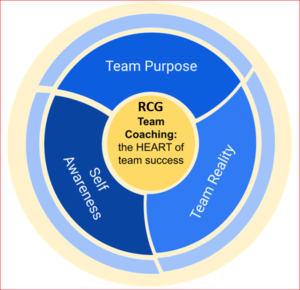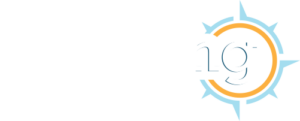Employ Team Coaching for Sustainable Change
 Almost every time we facilitate a Leadership Coaching for High Performance seminar, someone poses the question, “Can we use this with teams as well?” Our answer: “Of course. The same skills apply—the essential skills of committed listening, powerful paraphrasing, presuming positive intent, and reflective feedback.” However, there are some differences between individual coaching and team coaching. Notably, teams are comprised of a number of individuals with differing values, assumptions, beliefs, prior experiences, and expectations. And individuals come to teams bearing all their individuality.
Almost every time we facilitate a Leadership Coaching for High Performance seminar, someone poses the question, “Can we use this with teams as well?” Our answer: “Of course. The same skills apply—the essential skills of committed listening, powerful paraphrasing, presuming positive intent, and reflective feedback.” However, there are some differences between individual coaching and team coaching. Notably, teams are comprised of a number of individuals with differing values, assumptions, beliefs, prior experiences, and expectations. And individuals come to teams bearing all their individuality.
Individual coaching is “partnering with clients in a thought-provoking and creative process that inspires them to maximize their personal and professional potential.” Team coaching is all that—coaching a team as a single entity—while simultaneously monitoring and managing the complexities present within a team, such as noticing and facilitating group dynamics, managing conflict, and inviting the best from the team “entity”.
Team coaching is a process, not a one-time intervention. It differs from team building, team consulting, team training, team mentoring and team facilitation. Each of these modalities can be beneficial to developing teams and collaboration. Team coaching holds the promise of goals achieved and team sustainability.
The Results Coaching Global, LLC team coaching model has Team Coaching at the heart of team success. Surrounding this are team purpose, team reality, and self-awareness. The first step in beginning to coach a team is to determine or create and articulate the team purpose. This articulation of the WHY the team exists offers a focal point for cohesion around a shared purpose and a home for decision making, planning, and moving toward desired results. The WHY becomes a rallying point when individual agendas, perceptions, and needs find their way into the team collaborative process.
Think about a team you are or have been part of that is successful. What makes this team work well? Think of a team that you know about that seems to struggle or have frequent conflict. What is causing the disconnect? A coach that is external to the team may become the catalyst that supports successful or less successful teams to move forward toward greater clarity, purpose, sustainability, and goal accomplishment.
